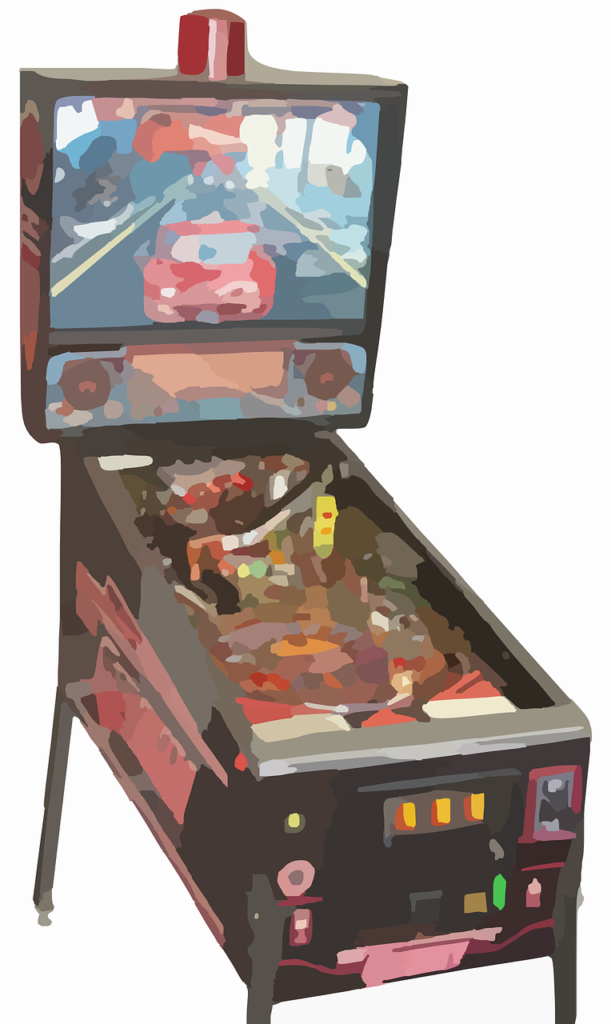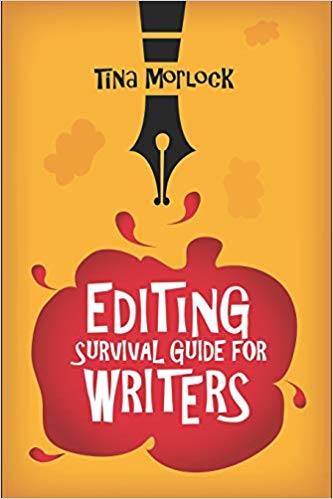Welcome to my first interview article! I plan to do these from time to time, so keep an eye out for more interviews in the future. Tina Morlock is a writer and editor with whom I have been working recently. Be sure to check out her website!
Diana: Let’s start with the basics – tell us a little bit about you!
Tina: I am someone who was built on a dream. The best assets I have in life are all inside my mind, even though it drives me crazy sometimes. So, first and foremost, I’ve always believed that if you have a passion for your dream, there’s nothing anybody can do to stop you from achieving it. But other than that, I’m a freelance editor who loves to work with new fiction authors in any way I can. I just became a published author this year, but I have so much more planned for the years to come.
Diana: Was there a defining moment in your life when you realized you wanted to pursue writing as a potential career, or was it gradual?
Tina: Um … yes! I’ve been writing since I was in my pre-teen years, but I didn’t realize that I could actually have it as a job until I landed on my high school’s newspaper staff by coincidence. Back then, I wrote mostly poetry for therapeutic reasons.

Diana: I bet many poets have started out that way. What was the first work you published? What were the easiest and hardest parts about it?
Tina: The first book I published was actually only published this year. It’s called Isolation Has a Dress Code: Poetry Misdiagnosed as Therapy. When I first decided to publish the manuscript, the easiest part about it was that the material had already been written. Some of it was written in poetry workshops in college, and others had been written years ago and were sitting on my hard drive, waiting for me to do something with them. The hardest part was figuring out how they all fit in together. Because I’d spent so much of my life in depression and anxiety, it seemed like a natural focus for the things I’d written.
Diana: I think it’s great that you can share that side of you with others who may share many of the same feelings. You have published a little more recently as well. I loved your book, “Editing Survival Guide for Writers”! How long did it take you to put together?
Tina: Thank you so much! Writing that book was really a spur of the moment thing. It came out of a frustration of dealing with writers who claimed to know more than their editor about editing, and some writers even go so far to tell them/us exactly what our job should be—even though they may be sometimes really far from the truth. It was a shorter book, so it didn’t take that long to write, and luckily, the excitement of the project carried me through to the end. The really challenging part was working with Amazon’s interface when I self-published it. Because the book was smaller, the spine always seemed to be off somehow. The idea of having to deal with that again still makes me cringe. It was sort of a nightmare, especially considering I had such a beautifully-designed cover and couldn’t get any assistance from that designer. But the short answer is—less than a month. Sorry, I got off track there.
Diana: That’s ok! This survival guide has already been extremely useful to me and I’ve barely scratched the surface of taking advantage of all the information included. When and why did you get into the editing business?
Tina: I’ve been editing for about a year and a half, but I’m not really one of these people who have dreamed of doing this for my entire life. Though I am passionate about it as much as I am writing, it seemed to happen by a chance connection with a publishing company that was hosting a course for editing and ghostwriting. I feel like for as long as I can remember, I’ve been a writer. My grandmother before me was a poet as well, so maybe it’s in the DNA. But editing was a way for me to make a living while helping writers put forward their best work. I do it out of a love for the written word and a desire to show other writers that it doesn’t have to break the bank to get a quality edit. We all deserve a chance to improve.
Diana: Do you have a favorite author? If it’s too hard to choose, who were some of the biggest influences to your writing?
Tina: More than anyone else, Charlotte Perkins Gilman is my ultimate influence—not only for writing but also for living. She was so independent and fearless in everything she did, publishing her own magazine by herself back in the late 1800s (or early 1900s). She also wrote about things that I think are important to write about today—things that advocate for anyone suffering from a mental illness. As far as poetry goes, I’m also heavily influenced by Karen Finley, e.e. cummings, and Charles Bukowski. Finley for her authentic shock value, cummings for his experimentation with the page, and Bukowski for the sheer brutal truth of life. Some of my other favorites are Dean Koontz, Clive Barker, Stephen King, Chuck Palahniuk, George Orwell, and Margaret Atwood.

Diana: You definitely cover a wide variety! Do you like to write in the same genre that you read?
Tina: Yes, absolutely. I think that’s the only way a writer can learn the ins and outs of the genre.
Diana: I agree! On the reverse, there are some genres I read that I haven’t attempted to write in yet. Speaking of writing and opinions, what is the best and the worst advice you’ve received about the writing process?
Tina: The best advice that I ever received came by way of a compliment. Many years ago, some random person on the Internet told me I had great potential as a writer, but that I needed to find out what kind of writer I was. Worst? Anyone who says you can’t make a living as a writer. While I’m not quite there yet, I know of way too many indie authors who make more than six-figures writing because they refuse to give up. That gives me—and the rest of the writing world—so much hope.
Diana: Do you have any writing rituals or are you comfortable writing anytime and anywhere?
Tina: My life has always been busy, with school, business, kids, and pets, so I had to be comfortable being ready to write anytime anywhere. I started using OneDrive (Microsoft) so that I’d have access to my work no matter where I was writing from. Now that I work from home, I typically sit on the couch with my laptop and write. I’d like to someday build a large office with a library, but that’s a ways off.

Diana: A woman after my own heart! I have known since I was in school that I wanted to be a writer, but so many people warned me about the difficulties of a sustainable income that I had other grand ideas of professions as well. If you could choose any other profession outside of the writing world, what would it be?
Tina: It would be something in online marketing—like an SEO strategist or something similar. I love the creative process and I especially love brainstorming unique ideas, so I think that’s something that allows you to do both. I’ve been a computer nerd every since I was a teenager, so if it wasn’t something like that, I probably would have gotten into web development.
Diana: How do you balance your writing time with your job and personal life? Having often seen the timing of your Facebook and Twitter posts, you would be hard-pressed to convince me that you sleep more than a dozen hours a week……
Tina: I get it done before I do anything else. First thing in the morning, I write on the project I planned to write on for that day, and then I can continue with my editing duties or work on planning out my social media posts.
Diana: I love planning! When it comes to research – are you a lover or a hater?
Tina: Love! SO MUCH. I always have something I want to learn about, so Google is probably my most widely-used website. I also make great use of the databases at my university’s library. With that said, though, I prefer writing projects that don’t require a sizable amount of research. They are much easier to write, obviously.

Diana: I love researching too, but I really have to stay on track. It’s too easy to slip down that search engine black hole! Ready for one of the big questions? Are you a plotter or a pantser?
Tina: A bit of both. I like to have enough figured out to be able to stumble through that first draft with very little confidence, yet enough confidence (somehow) to make a little sense. Screw perfection. That’s what revisions are for.
Diana: I recently heard of someone who writes outlines that are 15k-20k words long and I think I had a mild aneurysm. I hold value in outlines a good chunk of the time, but they never run the length of a long short story or novella. Now that we are talking about books, have you read all of the books you own?
Tina: Hah! Hell no! If books were cockroaches, you’d run screaming from my bedroom. I try to read a little bit from a different book every day of the week, but I don’t always have a ton of time to do that.
Diana: It got to the point where I had almost 600 books. I sold some and gave some away that I knew I would not read again, or suddenly wondered why I had purchased it in the first place. I still have hundreds and have read a very small portion of them for the same reason as you – lack of time! What else do you do for fun?
Tina: When I make the time, I like to play pinball.

Diana: I haven’t touched a pinball machine since I was a kid! Or possibly a young adult. So what were your favorite books as a child?
Tina: I don’t remember what my favorite books were back then, but I did fall in love with Clive Barker’s Weaveworld when I was a teenager. As an adult, I’ve really got into Dr. Seuss, and probably own at least twenty to thirty of his characters in stuffed animals. I even have some Spanish Dr. Seuss dictionary around here somewhere.
Diana: Now I’m wondering how well Seuss rhymes can be pulled off in other languages, but I digress. What main project or projects are you currently working on?
Tina: I probably have close to fifteen I wish I had time to work on regularly, but I am unfortunately only a human being. I have four that I’m actively working on currently:
* The War of Pages—first book in a young adult science-fiction/dystopian/horror book series
* The Road to Hell Is Paved with Journal Entries—first book in a serial killer mystery book series
* Waking the Hollow—first book in a paranormal romance series
* The Broke-Ass Writer’s Guide—nonfiction book for self-publishing writers who don’t have any money to spend on services/products that will (of course) be offered for free on Amazon
Diana: I’ve been trying to keep up with your Wattpad output! And I’ve had the privilege of a sneak peek at the first few chapters of The Broke-Ass Writer’s Guide – it’s going to be amazing! Do you have any projects already planned for the near future?
Tina: Too many. If I had to add them all up, my works in progress list would probably be a list of 10 to 15 defined story or book ideas. Three that I’ll be working on finishing in the near future are:
* Red Flag Conversations—a creative journaling experience for survivors of domestic violence
* Sins of Story: Memoirs of an Angel—a stand-alone fantasy novel that focuses on a fictional afterlife where suicide victims go when they die
* Sad Girls’ Poetry Club—a young adult narrative poem about a group of lonely teenage girls who get together and write/perform poetry
Diana: How exciting! Before we wrap up, what is something readers may not know about you?
Tina: That I really don’t think I’m that great of a writer!
Diana: I think we all feel that way some days….or even most days! But how can people learn more about you and your work?
Tina: For editing, my website is tinamorlock.com
Or, to read some of my novels-in-progress, my wattpad is: www.wattpad.com/user/tmorlock
A huge thanks to Tina for her time with this interview! Be sure to subscribe so you can get notifications when future articles, interviews and even reviews (coming soon) get posted!

